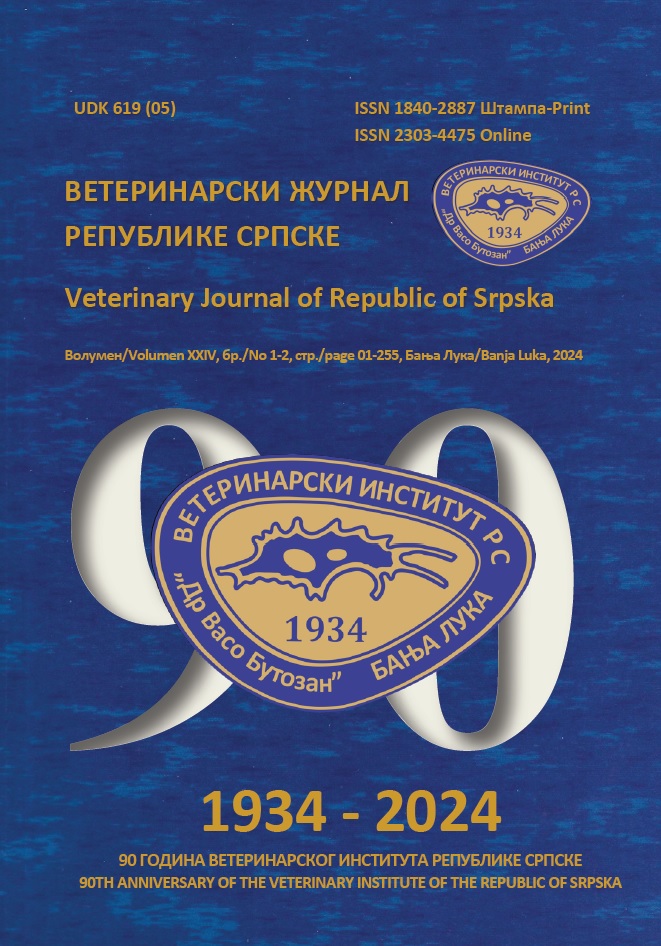MICROBIOLOGICAL STATUS OF DRINKING WATER FROM BROILER FARMS AND BIOFILM-FORMING ABILITY OF ISOLATED PATHOGENIC BACTERIA
DOI:
https://doi.org/10.7251/VETJEN2401088GAbstract
Water is an essential nutrient for the development of broiler chickens, which consume it in large quantities. Providing safe and high-quality water is crucial for maintaining the health of the individual. Biofilm is a protective mechanism for bacteria to group together and survive adverse conditions in the external environment. It is most often formed at the transition between the aquatic environment and air or the aquatic environment and a solid substrate in nature. The study was conducted during 2023 and included 150 water samples originating from broiler chicken farms. Laboratory testing of water was performed using the BAS EN ISO 6222, BAS EN ISO 9308 and BAS EN ISO 7899-2 methods. The aim of the study is to determine the microbiological status of water originating from poultry farms, as well as to examine the ability of isolated pathogenic bacteria from water to produce biofilms, which bacteria very easily and efficiently create in the aquatic ecosystem, and which can significantly contribute to the creation of antimicrobial resistance. Microbiological testing determined 64.67% satisfactory and 35.33% unsatisfactory drinking water samples. Drinking water on broiler chicken farms has a very unfavorable microbiological status, especially from the point of view of the adverse impact of pathogenic bacteria on this sensitive category of poultry. The water disinfection process needs to be considered and significantly improved, especially considering the significant use of well and spring water, and favorable conditions for the formation of biofilms in water supply systems. Escherichia coli strains showed significantly better biofilm formation at 25°C compared to 37°C, as well as compared to Enterococcus spp isolates.

